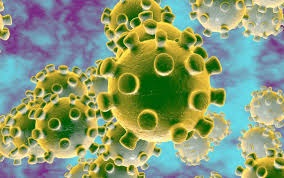Dear Patients,
The Centers for Disease Control (CDC) is closely monitoring an outbreak of the respiratory illness caused by the 2019 novel coronavirus (COVID-19) first identified in Wuhan, Hubei Province, China. Patients have been asking about their risk as we are experiencing spread in our community.
Most importantly, do not panic. More cases will likely be identified in the coming days as testing increases and community spread is inevitable – but most cases will be mild. However, the risk of more severe infection does increase with age and among those with weakened immune systems.
Here are important points for you to know.
Please call my office for instructions if you have symptoms that include fever (Temp. >100.4F or 38C), shortness of breath, cough and
You have had close contact with a person who has tested positive for COVID-19
–OR–
In the last 14 days you have traveled from an affected geographic area – China, Hong Kong, Japan, Taiwan, Thailand, Singapore, South Korea, Iran, or Italy.
For the latest updates on affected areas, check CDC Travel Advisories.
For information on travel within USA, check Coronavirus and Travel in the United States.
Please do not walk into our office if you have a fever or similar symptoms. Testing for coronavirus is being done only through specialized sites at this time. Please call us and we will help coordinate testing for you, if appropriate. We are not equipped to provide swab testing in our office – in fact, we are instructed to not perform swabs.
Not all people will or should be tested, as tests will be reserved for those deemed to be most at risk for having contracted the virus.
Treatment
Treatment consists of isolation and supportive care to relieve symptoms. Stay home when sick. If you have a fever, chills, mild cough or other symptoms of respiratory infection, self-quarantine in your home, and use over-the-counter medications to treat. There are currently no antiviral medications that have been approved for COVID-19.
Prevention
There is no vaccine yet available specifically for COVID-19, so the best way to prevent illness is to avoid being exposed to the virus, get enough sleep and stay well hydrated. Also, remaining in communication with close friends and family via phone or Skype can help your immune system remain strong. Calling neighbors who may be isolated to confirm they are doing ok will be good for them…and you. It is extremely important to stay up to date on all routine vaccines, including those for flu and pneumonia. While these won’t protect you from COVID-19, they will help you avoid other respiratory infections.
Take everyday preventive actions recommended by the CDC to stop the spread of germs, including:
- Wash hands with soap and water for at least 20 seconds each time. If soap and water are not readily available, use an alcohol-based hand sanitizer with at least 60% alcohol.
- Avoid touching eyes, nose or mouth with unwashed hands.
- Avoid close contact with people who are sick.
- Cover your cough or sneeze with a tissue, then throw the tissue in the trash. If you have no tissue, cough into your arm – not your hand.
- Clean and disinfect frequently touched objects and surfaces using a regular household cleaning spray or wipe.
- Prepare yourself. Have groceries, household items, over-the-counter medicines and supplies like tissues on hand so you will be able to stay at home for 2-3 weeks if needed. Most people will be able to recover from COVID-19 at home.
Please do not purchase face masks to protect yourself. Face masks are in short supply now and should be used only by people who show symptoms of COVID-19 and by health workers and others who are caring for COVID-19 patients.
Prevent community spread:
Maintain at least 6 feet of social distancing: Avoid activities where you have a lot of exposure to the general public. Individuals over age 65 and those with underlying health conditions who are at most risk of developing serious effects from the virus should stay away from mass gatherings such as religious services, concerts or sporting events.
Stay home if you are at higher risk: Individuals over age 65 who have chronic lung, heart or kidney conditions, those with diabetes, those using chronic immunosuppressants or on chemotherapy should avoid commercial transportation (planes and trains) and stay home whenever possible.
Good News:
- According to two recently published journal articles, pregnant women and fetuses are not found to be at increased risk.
- Healthy children are not at increased risk. Children account for <1% of all proven cases. We believe this is because their immune systems are particularly suited for protection.
- Two-thirds of worldwide COVID-19 infections have already resolved,
- Although cases in our area are sure to rise over the next 1-4 weeks, experts believe that if we quarantine ourselves when ill we can impact the number of new cases significantly.
For regular updates, please check these trusted sources of information:
CDC Updates
Illinois State Department of Public Health
John Hopkins Coronavirus Resource Center
Let’s continue to be vigilant and look out for one another. We will get through this together.


